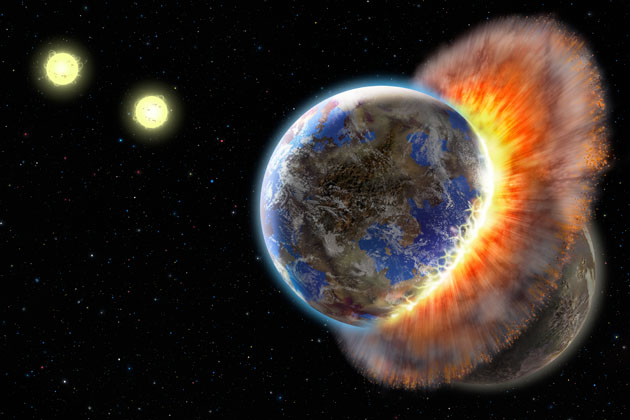LanguageWorlds.com |
| |
|
Greetings! My name is Paul M. Strickler. I'm an author
and sixth-year PhD candidate in the field of creative writing at Lancaster
University, currently in the writing-up phase of my research. Welcome
to my site where I will be developing and sharing aspects of my research
in the area of fictional world theory / possible-world theory as specifically
related to world appropriation from popular fiction by literary fiction.
Important academics in this area include, but are certainly not limited to, the following (in no particular order; bolded names indicate those theorists I have already studied extensively): |
- Lubomir Dolezel
- Sture Allen
- Nils Enkvist
- George Slusser
- Takashi Yagisawa
- Nancy H. Traill
|
- Doreen Maitre
- Michael Loux
- Thomas Pavel
- Jeffrey Goodman
- Ruth Ronen
|
- Marie-Laure Ryan
- Elena Semino
- Nicholas Wolterstoff
- Nicholas Rescher
- Thomas Martin
|
If you have an interest in the subject area of fictional world theory / possible worlds theory, I would love to hear from you. You can email me at: PaulMStrickler@HorrorPlace.com.
This site was established on 25 July 2010. As time allows and as my research activities progress, I will be expanding the material presented here.
My author web site is available at: www.HorrorPlace.com. |
| |
|
| |
PhD Thesis Working Title (13 May 2011)

Image by: Lynette Cook (http://lynettecook.com)
Worlds in Collision:
Exploring Literariness within Fictional Worlds through the Writing of a Novel Leading to a Proposed Theory of Intergenre World Creation
|
|
| |
| |
| Proposed Abstract (13 May 2011): This thesis uses as its primary methodology a practice-as-research approach within the creative writing discipline manifested through the creation of a full-length original novel. The novel, Lost Boy , explores notions of literariness through the craft and process of a novel's development throughout initial conception; character, story and theme development; event, action, motivation and plotting; and initial drafting, re-writing and final editing. Accompanying this creative artifact is a critical and theoretical commentary examining differences and similarities between literary and popular fictional worlds, their instantiating texts and the use of possible-world theory, schema theory and intertextuality as parts of a governing conceptual framework for use in creating hybrid works incorporating elements from both literary and popular fiction. Through this dual-pronged methodology, it will be shown how these worlds, traditionally dichotomized, may more effectively, via concomitant achievement of intentions traditionally considered mutually exclusive, collaborate to create works capable of providing more than either could alone. More specifically, does incorporating the idea-centric, thematical, and character-rich depth of literature with the greater language transparency, settings, action, plotting and inhabitants of popular fiction, generate works comprising a better-than-both result? My work uses primarily the possible-world conceptual framework as contextualized within the literary theory discipline as examined within the works of Doležel, Pavel, Ronen, Ryan, Semino, Maitre and others. Complementing this, I secondarily utilize elements derived from a broad spectrum of theoretical areas including schema theory, intertextuality, and narratology as complementary tools, within a “trinity of influence” model applied toward fictional world building, for expanding the tenets of possible-world theory into a realm I've entitled ‘intergenre' world creation. Using this proposed realm, I explore not only its merit for insight into further theoretical-focused research but its practical application within creative writing process and pedagogy toward the achievement of cross-boundary works capitalizing on the strengths of both literary and popular fiction. |
| |
|
| |
| |
| |
| Key words: possible worlds theory, fictional world theory, fictional worlds theory, textual world theory, textual worlds theory, narrative world theory, narrative worlds theory, lancaster university, university of cumbria, strickler, paul strickler, paul m. strickler, narrative world creation, textual world creation, literary text worlds, fictional world creation, textual world creation, narrative world creation, literary world theory, text world theory. |
| |
| |
